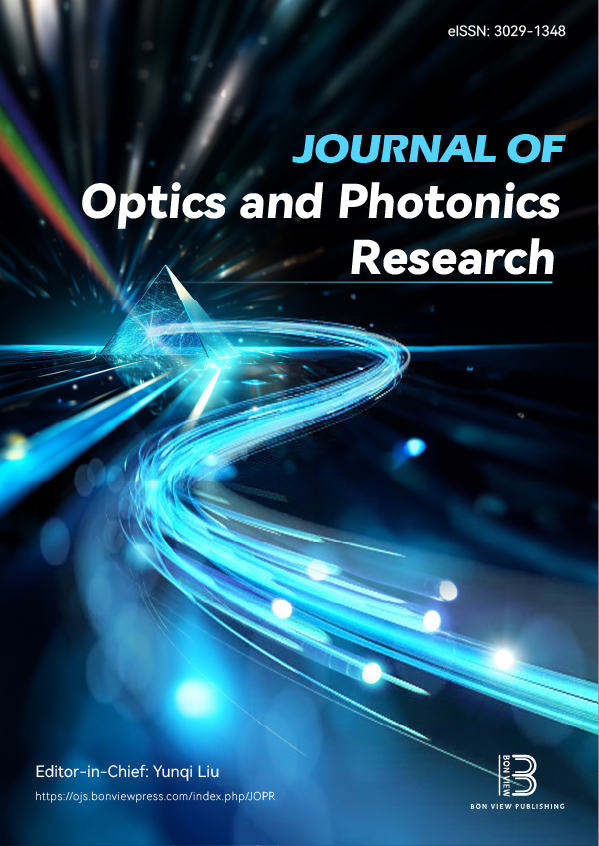Features of Restoration of Orientation of Nematic Liquid Crystals After Pulse Shift
DOI:
https://doi.org/10.47852/bonviewJOPR52026746Keywords:
nematic liquid crystal, orientation relaxation in liquid crystals, pulse shiftAbstract
The aim is to study the processes of restoring the orientation of nematic liquid crystals (LCs) after a pulse shift. A sample of 4-octyl-4'-cyanobiphenyl was examined. The thickness of the LC layers ranged from 35 to 105 microns. The research methods included an experimental study of the effect of a mechanical shear pulse on thin layers of homeotropically oriented LCs (the Foner method) and theoretical modeling based on the Eriksen–Leslie equations. The experiment was carried out on a multilayer cell. Changes in the orientation of molecules were studied using optical imaging and recording of electrical signals. The obtained results showed a significant change in the temporal dynamics of light transmission and the angles of rotation of the director with a change in the amplitude and duration of the pulse. The main results showed that director relaxation occurs exponentially, and nonlinear effects such as the formation of domain structures and orientation waves were observed at amplitudes from 200 to 350 microns. At the same time, the relaxation time decreases rapidly. The proposed theory made it possible to explain the observed effects and calculate the relaxation time spectra. A satisfactory agreement was found between the theoretical and experimental relaxation time. The results obtained are important for improving the performance of LC-based devices such as displacement sensors, as well as understanding the fundamental mechanisms of the functioning of LC materials.
Received: 10 July 2025 | Revised: 4 September 2025 | Accepted: 26 September 2025
Conflicts of Interest
The authors declare that they have no conflicts of interest to this work.
Data Availability Statement
Data are available from the corresponding author upon reasonable request.
Author Contribution Statement
Olga Denisova: Conceptualization, Methodology, Validation, Formal analysis, Investigation, Resources, Data curation, Writing – original draft, Writing – review & editing. Yaroslava Abramishvili: Formal analysis, Investigation, Writing – original draft, Visualization.
Downloads
Published
Issue
Section
License
Copyright (c) 2025 Authors

This work is licensed under a Creative Commons Attribution 4.0 International License.


